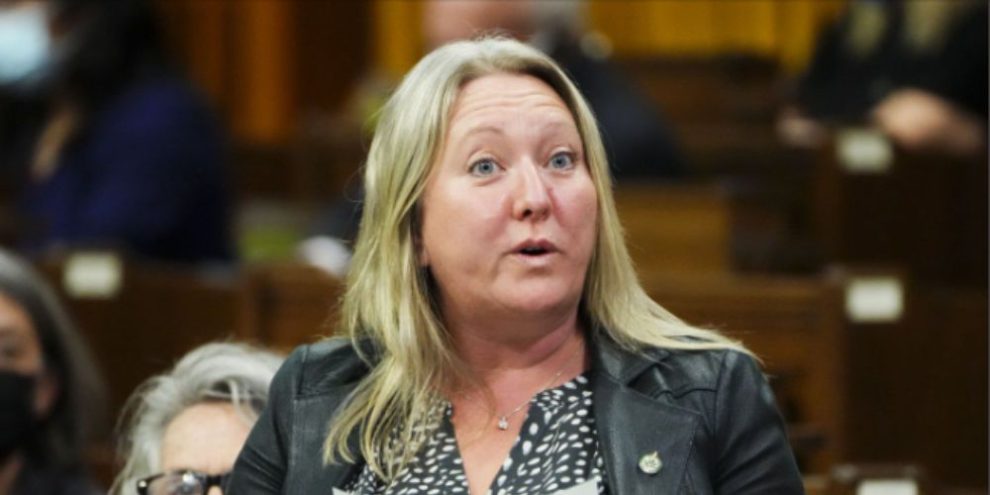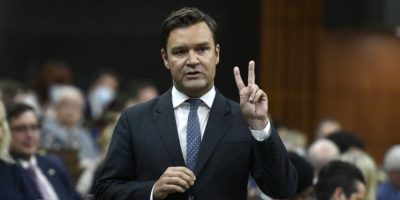
By Stephanie Taylor
The federal Treasury Board says it has no plans to expand a bonus — now paid to employees who speak English and French — to those who know an Indigenous language.
The bilingualism bonus is an extra $800 employees receive a year if they work in a position designated as requiring language skills in English and French, Canada's two official languages.
Expanding it to compensate employees who speak an Indigenous language was among the suggestions senior civil servants proposed late last year as they discussed ways to address language concerns held by some Indigenous public servants.
Some details of those considerations were contained in a briefing note released to The Canadian Press under the federal access-to-information law.
The Public Service Alliance of Canada, a union representing more than 120,000 federal employees covered by Treasury, has proposed creating an Indigenous language allowance to introduce compensation for those who use one in the course of their work.
National president Chris Aylward said the union has identified nearly 500 federal employees who speak an Indigenous language on the job.
"It's a discriminatory practice," he said in an interview. "When their co-workers are getting paid an allowance to speak a second language and these workers are not … how can this government justify that?"
"This is a very progressive and, we feel, a very tangible way for the government to recognize the importance of Indigenous languages in Canada … it's a win-win."
Aylward said the union, which has been negotiating a new contract with the government for more than a year, is also proposing to increase the bilingualism bonus to $1,500, up from the current $800, and wants to see the same compensation provided to Indigenous language speakers.
"We definitely believe that Indigenous workers should be recognized for the language that they speak."
The bilingualism bonus is designed to support the government's commitment that public servants can work in the language of their choice — a measure required of federal institutions under the country's official languages law, said Alain Belle-Isle, a spokesman for the Treasury Board of Canada Secretariat.
"Treasury Board has no plans to broaden the scope of the bilingualism bonus to include Indigenous languages," Belle-Isle said in a statement.
In a follow-up statement, a spokesman in the office of Mona Fortier, the minister responsible for Treasury Board, said it was committed to creating an inclusive public service and working with partners to address barriers to employment and career advancement.
"We will never change the fundamental principle of bilingualism in the public service," wrote Scott Bardsley, adding that more than 40 per cent of federal jobs require dual language proficiency.
He also pointed to an increase in Indigenous representation in the government's executive ranks, which was reported as being 4.4 per cent in 2020-21, up from 3.7 per cent in 2015-16.
Preserving and promoting Indigenous languages is among the reconciliation-related promises Prime Minister Justin Trudeau's Liberal government has prioritized. In 2019, it passed legislation meant to help Indigenous communities revitalize languages their members were not permitted to speak under government policies, like the one in place in the residential school system, which operated for more than a century.
In response to Treasury Board's decision, the Native Women's Association of Canada pointed to the Truth and Reconciliation Commission of Canada — the body that investigated residential schools — calling on Ottawa to recognize that Indigenous rights include language rights.
"We expect better from the government!" it tweeted.
Cindy Blackstock, a First Nations child-welfare advocate, called the move “unbelievable” in a tweet Tuesday.
Recently released census data from 2021 shows a slight drop in the number of people who reported being able to speak an Indigenous language.
Statistics Canada also reported a decline in the percentage of people who say they speak French at home.
Lori Idlout, the New Democrat MP for Nunavut, who speaks Inuktitut, said she plans to try to persuade Treasury Board to change course.
"I'm quite disappointed," she said. "I'm frustrated."
The MP believes federal employees who can speak an Indigenous language like Inuktitut provide Indigenous residents with better service, and should be entitled to the same benefits as counterparts who speak English and French.
"Canada is founded on Indigenous lands, on First Nations, Métis, Inuit lands, and if reconciliation is to be realized, this is one of the ways that it has to happen … they need to be given the same value as bilingual English or French federal employees."
This report by The Canadian Press was first published Aug. 23, 2022.
Banner image via The Canadian Press






